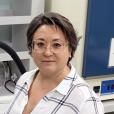

Showing 241 - 260 of 389 results

Deciphering the complex molecular activity that leads to cell death
Research on the mechanism of cell death has insights to bring progress on neurodegenerative diseases and plant biosecurity.
Innovator in energy and sustainability uses power of synchrotron light to make advances

Role at ANSTO
Dr Inna Karatchevtseva undertakes work at ANSTO in two main areas: defence industry research and fundamental materials research.
Micro-Computed Tomography beamline (MCT)
With enhanced submicron spatial resolution, speed and contrast, the Micro-Computed Tomography beamline opens a window on the micron-scale 3D structure of a wide range of samples relevant to many areas of science including life sciences, materials engineering, anthropology, palaeontology and geology. MCT will be able to undertake high-speed and high-throughput studies, as well as provide a range of phase-contrast imaging modalities.

Resources Sector
Our world is rapidly transitioning to renewable energy and electric transport systems that require the safe and efficient mining of various metals.

Role at ANSTO

Biological small angle X-ray scattering beamline (BioSAXS)
The Biological Small Angle X-ray Scattering beamline will be optimised for measuring small angle scattering of surfactants, nanoparticles, polymers, lipids, proteins and other biological macromolecules in solution. BioSAXS combines combine a state-of-the-art high-flux small angle scattering beamline with specialised in-line protein purification and preparation techniques for high-throughput protein analysis.

Adrian Manis is a Principal Consultant within ANSTO's Minerals area. His role is focused on the scale up of hydrometallurgical processes from batch to continuous testing, from miniature through to demonstration pilot plant scale.

Role at ANSTO

The Australian Synchrotron
A world-class national research facility that uses accelerator technology to produce a powerful source of light-X rays and infrared radiation a million times brighter than the sun.

Hamilton Wearing is the Operations Manager within within ANSTO's minerals area. Hamilton’s role includes oversight of sample management, analytical laboratory support , ensuring regulatory compliance of operations and leading continuous improvement

Role at ANSTO
Dr Jian is involved in the study of accelerator optics and ion beam control, Ione beam interaction with different materials, IBA techniques and applications.

Delivery schedule
Latest information on the scheduled supply of our nuclear medicine production.

Infrared microspectroscopy
The Infrared Microspectroscopy beamline combines the high brilliance and collimation of the synchrotron beam through a Bruker V80v Fourier Transform Infrared (FTIR) spectrometer and into a Hyperion 3000 IR microscope to reach high signal-to-noise ratios at diffraction limited spatial resolutions between 3-8 μm.

Australian Centre for Neutron Scattering
The Australian Centre for Neutron Scattering (ACNS) is a major research facility for neutron science that comprises a suite of neutron instruments with a range of techniques for scientific investigations in physics, chemistry, materials science, medicine and environmental science among other fields.
Radiation biology
In space, without the protection of the magnetosphere, the type and dose of radiation is considerably different to what is naturally experienced on earth.

Medium Energy X-ray Absorption Spectroscopy Beamline (MEX-1 and MEX-2)
The Medium Energy- X-ray Absorption Spectroscopy beamlines will provide access to XANES and EXAFS data from a bending magnet source, optimised for cutting-edge applications in biological, agricultural and environmental science in an energy range that is not currently available at the Australia Synchrotron.

